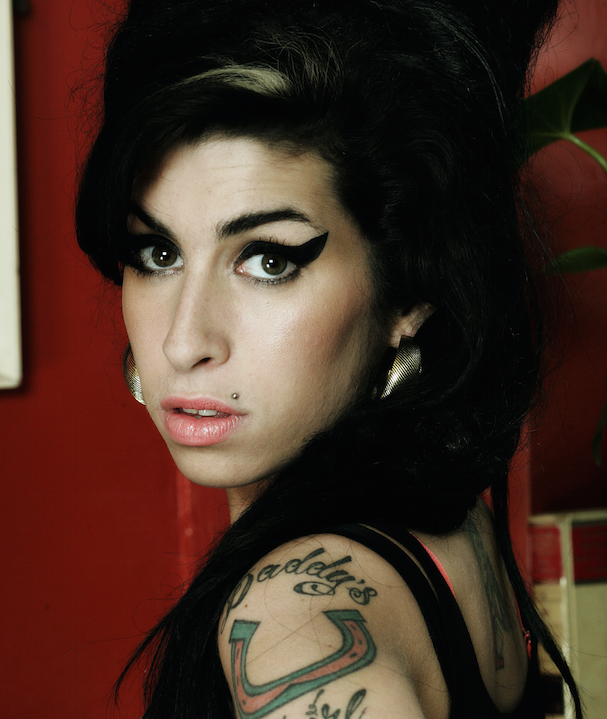
I saw Asif Kapadia’s Amy three weeks ago and I still can’t shake it. Partly because the film’s footage is so intimate, it felt like Amy Winehouse herself was whispering in my ear. Partly because the film was a reminder of what a once-in-a-generation talent she was. And partly because it made me feel strangely complicit in her death. We all were.
Whenever a famous person dies of a drug overdose, or some addiction-related ailment (in Winehouse’s case, alcohol poisoning, exacerbated by bulimia and heroin use), we always ask ourselves, “Where was her family? Her friends? Her employers? Couldn’t they all see what was happening to her?”
Amy chillingly answers that question by saying, “Yes. They saw what was happening and chose to do nothing.”
For the most part, her support system was too invested in Amy Winehouse, the brand, to care about Amy Winehouse, the woman. They needed her to keep writing, keep recording, keep touring—so they turned a deaf ear to her cries for help, literally propped her up (at one point, dragging her from her bed, into a limo, and onto an airplane) so she could continue to produce and perform. Worst of all, her own father was so enamored with her fame, he convinced her not to go to rehab (just like the song says), and sabotaged a private vacation—one of Amy’s few respites from the relentless paparazzi and spotlight—by bringing a reality TV crew of his own.
So how are we complicit? Because we secretly knew. Amy Winehouse, the effed up rock star, was a late-night punchline (the film shows Jay Leno, and others, cracking wise at her expense)—and we all laughed. We heard her song, “They tried to make me go to rehab and I said, no, no, no”—and we danced and we consumed and we wanted more.
And then she was gone.
Kapadia’s documentary—which uses home video, archival footage, and clips of concerts and old and new interviews—feels a bit like a horror film, except the inescapable monster is fame. And because the footage is so exhaustive, it all plays out like a biopic. When we first see Amy, she’s a carefree teenager who can already belt out “Happy Birthday” like a wizened soul singer. We see her land her first album—and watch as the world comes to recognize her outsized talent. She fears fame, admits it could possibly kill her, but it creeps up on her. Suddenly, she’s in the midst of this tsunami of celebrity and there’s no escape. Kapadia shoots the paparazzi’s flashbulbs like the dizzying and disorienting backdrop to a neverending nightmare.
All the while, Amy—teetering in heels, her black hair piled high on her head, her punk-glam makeup thick and smeared—comes across as shy but fiercely smart and funny, defiantly antiestablishment, and never fully recovered from her parents’ divorce, which gave her a vulnerability, a constant need for love and approval. She finds her bliss whenever she’s singing and recording. But the pressure to create on demand—and the temptations and expectations of fame—messes with her. She starts to drink heavily. Later, she dates and marries London club kid Blake Fielder Civil, who introduces her to heroin. And that’s all she wrote.
Even as she begins to fall, there are a few moments of grace—Amy, late in her life, getting to meet and record with her hero Tony Bennett, who recognized her as a fellow luminary. Amy winning a bunch of Grammys and getting to celebrate, girlishly, with her childhood best friends. Amy absolutely mesmerizing crowds with the rawness and honesty of her talent. But such moments add to the profound sense of loss. Still, while the film is crushingly sad, it’s also a celebration of Winehouse. When she died at the age of 27, we felt that it cheated us out of more of her wonderful music. Now, thanks to this film, it feels personal.
